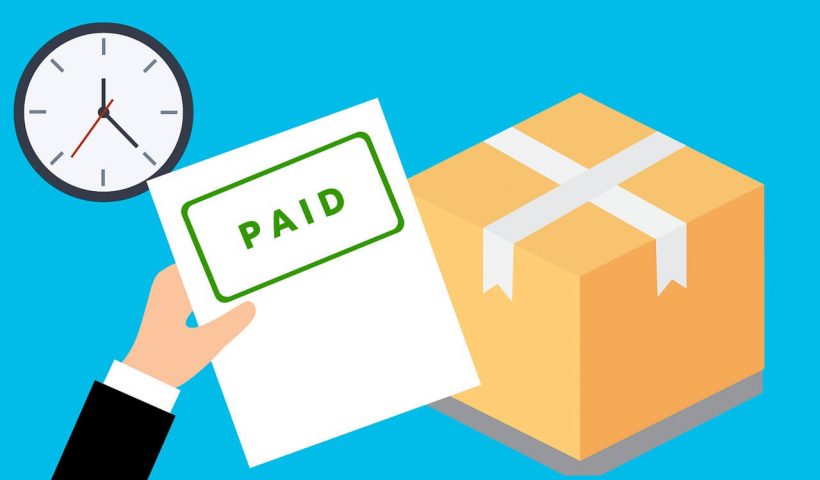Can You Charge VAT When Passing Costs Onto Your Client?

If you are selling a product or service and you incurred expenses as part of normal business operations, these costs may be recharged to your client as part of your invoice. If you incurred a cost on behalf of your client that you need to pass over to them, then it’s called a disbursement, and there’s a difference between the two transactions.
We understand that VAT and tax can be quite complex and complicated. At Joanna Bookkeeping, our Oxford-based accounting and bookkeeping team can carry out an initial assessment of your accounts and discover the best strategy for your business’s finances going forward. And the good news is that we’re fully digital, so we can help you even if you’re not based in Oxford!
Our aim is to help you spend less time on bookkeeping and more time growing your business – Let’s have a chat with a member of our Oxford accounting team!
Our clients quite often ask us if they can charge VAT when passing costs onto their clients. We’ve put together this easy-to-follow article to help you better understand this topic.
Incidental Costs
In addition to the cost of goods and services you provide, you can calculate incidental costs such as travel expenses, hotel costs, and sustenance and invoice your client for these additionally. These are the costs that are part of running your business and supplying goods and services to your clients and they are your costs. In this case, it’s important to make sure you have a VAT invoice or receipt in order to recover any VAT charged on your expenses. When you add these costs to your sales invoice, your client will be able to claim VAT as well (if they’re VAT registered). These costs are incidental and are different from disbursements discussed below.
If you’re a VAT-registered business that wants to recharge expenses to your client, then you must charge VAT on all of those transactions, even if you didn’t pay VAT on the expense in the first place. That means that you still need to add VAT on zero-rated expenses when you recharge the client.
A few examples of costs that could be recharged to clients (but are not disbursements) are:
Travel costs – These are your costs not your client’s, so if you recharge the cost to your client you must charge VAT.
Postage costs – Again, these are your business costs, so when you buy stamps, send letters to your clients, you must include VAT on your invoices if you recharge them.
Bank transfer fees – When you’re incurring bank fees as a result of your normal business operations (even if the bank’s fee is exempt from VAT) you must charge VAT when recharging the cost to the client, because you paid for a service that was provided to your own business and not to your customers business.
Professional accounting support
Doing Your business's VAT Returns is giving you a headache?
Check our VAT return services and get in touch.
Disbursements
As a business, sometimes you might make transactions for goods or services to third parties on behalf of your customers. These transactions may be classed as disbursements for VAT purposes, meaning that you can’t:
- Charge VAT on them when you invoice your customer
- Claim back any VAT on them
To treat a payment as a disbursement all of the following must apply:
- You take on the role of an agent and pay the supplier directly, but on behalf of your customer.
- The product/service you paid for must be received and used by your customer.
- Your customer gave you full permission to make the purchase for their product or service.
- Your customer had prior knowledge that the product or service was from a third-party supplier and not from you.
- The responsibility of payment lies with your customer, not you.
- Your invoice shows that you recharge the exact amount of each product or service to your customer.
- You add the cost of your services onto the cost of the product or service you paid for.
Example To Understand disbursements and recharges
A wedding photographer based in Manchester has been invited by a client to their location wedding in Paris. They agree that the client will pay for the photographer’s services, flight, and hotel in Paris and the client also agrees to purchase a printed photo package from a printing company in Manchester. However, the printed photo package will be ordered and paid for by the photographer.
The photographer and the client agree on the following fees for the services and products:
- Photographers services = £2000
- Photographers traveling expenses (flight and hotel) = £800
- Printed photo package to be ordered on the client’s behalf = £250
The £800 travel cost that the consultant recharges to the client is not a disbursement. It is a reimbursement instead and in this case the consultant must charge VAT on it. But the cost of the printed photo package is a disbursement and must be excluded from the VAT calculation, as it meets all the conditions mentioned above in the Disbursement section of this article.
This will all be shown on one invoice but the disbursement line will have no VAT added.
We get it, VAT-related topics can be pretty daunting.
Joanna Bookkeeping is always here to help ease the process! Book a FREE call and have a chat with our professional Oxford-based accountants to learn more about how we can help your business with its VAT and tax responsibilities.
Frequently Asked Questions
Disbursements are outside the scope of VAT and you musn't charge VAT on those when passing the costs onto your client.
As disbursements are outside the scope of VAT, they are not included in a VAT return. They are in the same category as for example, wages paid, so they don't affect the numbers on your VAT return.

Your Accountant in Oxford
Oxford Office
Joanna Bookkeeping
The Wheelhouse Angel Court
First Floor, Angel Court
81 St Clements St
Oxford
OX4 1AW
Connect
joanna@joannabookkeeping.co.uk
01865 591952





